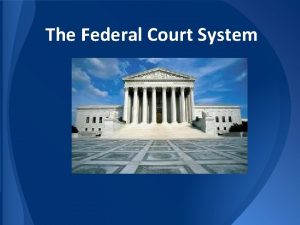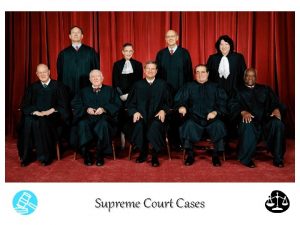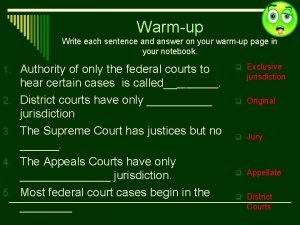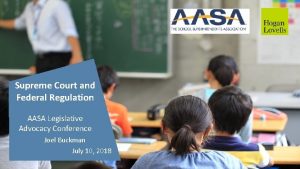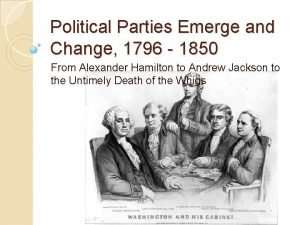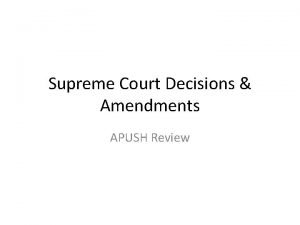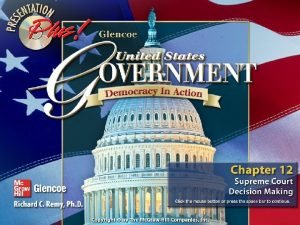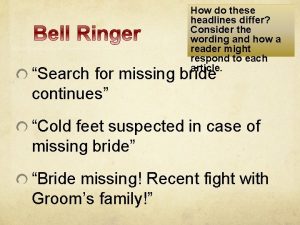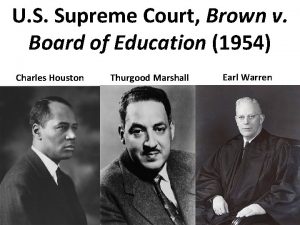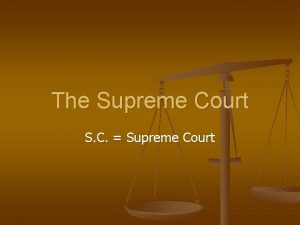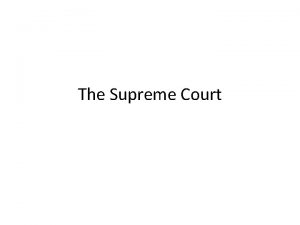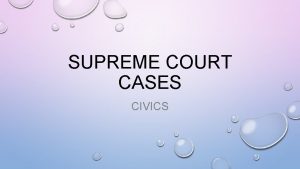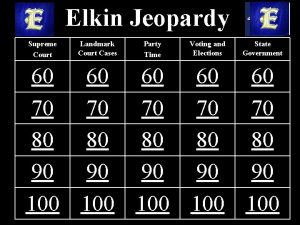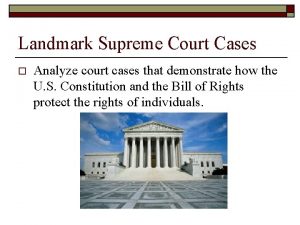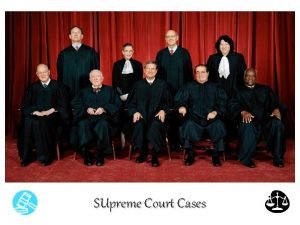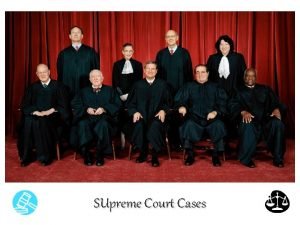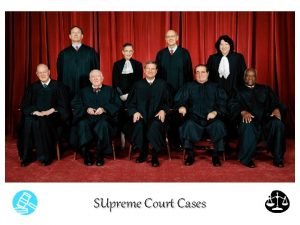C 3 12 Landmark U S Supreme Court












- Slides: 12

C. 3. 12 Landmark U. S. Supreme Court Cases Guided Notes EOC Review

Gideon V. Wainwright Gideon was arrested in FL for breaking and entering Courts denied him the right to a lawyer Courts violated his 14 th (He did not have a fair trial b/c he was poor & could not afford a lawyer) & 6 th (denied the right to a lawyer) Amendment rights

Miranda v. Arizona Miranda was arrested for kidnapping. He did not know he had the right to remain silent or that he had the right to a lawyer. After confessing to the crime he appealed the case on the grounds that his 5 th & 6 th Amendment rights were violated b/c he did not know he had those rights. Miranda rights were created. Police have to read people these rights

Tinker v. Des Moines Students were suspended from school b/c they wore black arm bands to protest the Vietnam War. Supreme Court ruled that the students 1 st amendment right was violated. Schools only have the right to limit student’s freedoms/rights if their actions affect the learning environment.

US v. Nixon refused to overturn audio tapes. He said he had executive order which allowed him to keep the tapes from the courts. The Supreme Court ordered Nixon to overturn the tapes b/c of Rule of Law. No one is above the law/the law applies to everyone.

Hazelwood School District v. Kuhlmeier Principal removed a student written article from the school newspaper. Students felt it violated their 1 st amendment right The Supreme Court ruled that schools can limit students’ rights if their actions are disrupting the learning environment.

Bush V. Gore During the 2000 election there was an issue with some ballots in FL. Florida wanted to recount some of the ballots but Bush argued that it would violate those citizens 14 th amendment right to the equal protection clause. No ballots were recounted. Bush won.

District of Columbia (DC) v. Heller Washington DC passed laws on gun control. Some citizens felt it violated their 2 nd amendment rights. Supreme court agreed

Marbury v. Madison In his last days in office, President Adams appointed several federal judges and justices of the peace to office. Marbury was one of the men. When the new president Jefferson took office he told Marbury not to submit the papers that allowed the jobs to be final. The Supreme Court ruled in Marbury’s favor and also said it had the power of judicial review (the power to decide whether certain laws and government actions are unconstitutional).

Plessy V. Ferguson Plessy (an African American male) sat in the all-white section of the railroad cart. He refused to move when told to do so b/c he felt it violated his 14 th amendment right to equal protection. The Supreme Court Ruled that separate but equal was still equal. Segregation is okay.

Brown v. Board of Education African Americans and whites had to attend two different school. Schools were segregated. Brown felt this violated her 14 th amendment right. Supreme courts agreed. Schools were required to desegregate.

In re gault Gault was 15 years old when he was arrested for a crime. He was denied due process b/c he was a juvenile. The Supreme Court ruled in his favor b/c of rule of law. Everyone is treated equal under the law regardless of age.
 Is there a basketball court above the supreme court
Is there a basketball court above the supreme court The supreme court
The supreme court Us circuit court map
Us circuit court map Supreme court cases graphic organizer answers
Supreme court cases graphic organizer answers How cases reach the supreme court worksheet answers
How cases reach the supreme court worksheet answers Supreme court does
Supreme court does Supreme court
Supreme court Which precedent was established by the supreme court
Which precedent was established by the supreme court The supreme court change
The supreme court change Apush amendments review
Apush amendments review Supreme court does
Supreme court does What do these headlines say about how the supreme court
What do these headlines say about how the supreme court Supreme court
Supreme court


